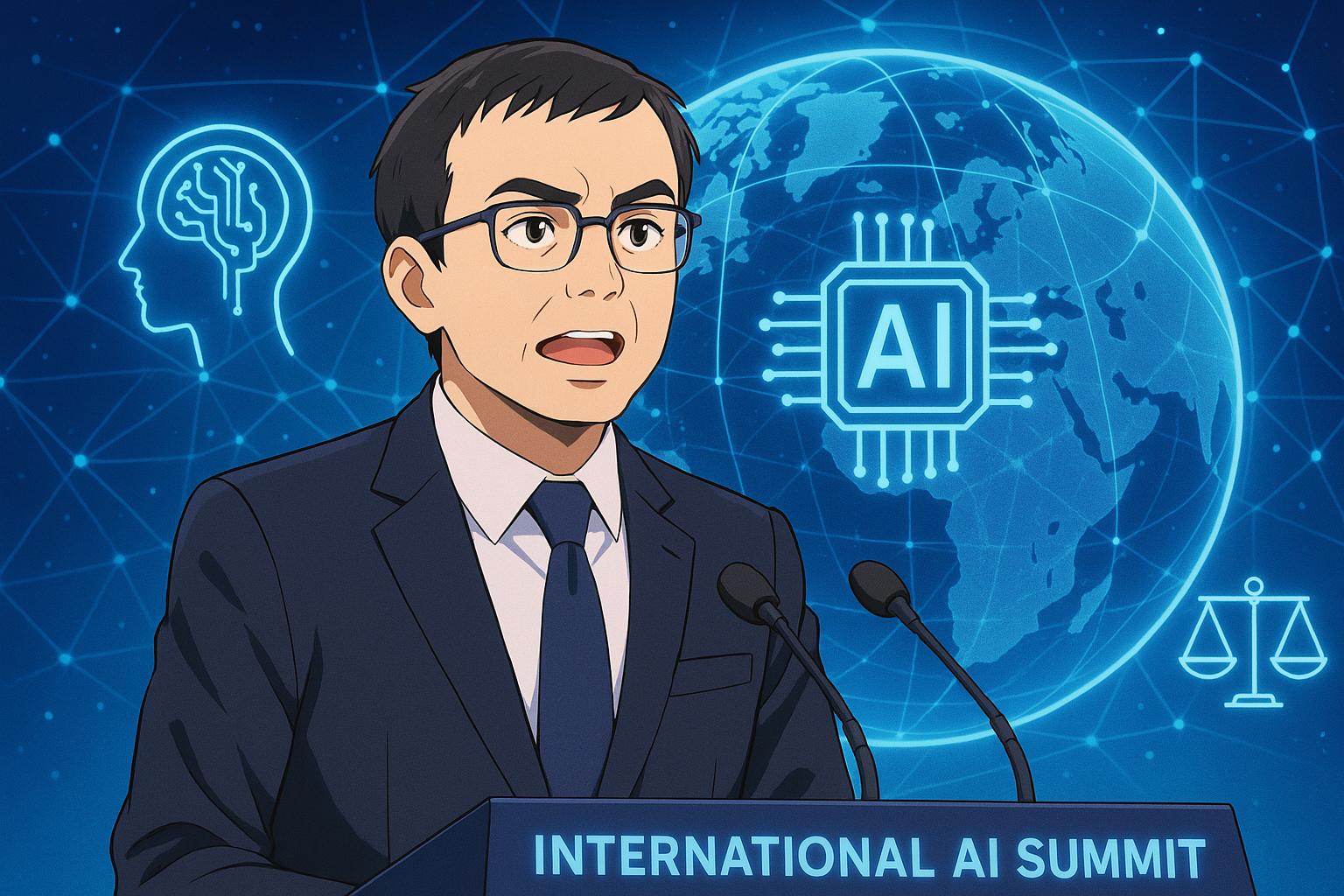Demis Hassabis, the pioneering CEO of Google DeepMind and recipient of the 2024 Nobel Prize in Chemistry, recently underscored the pressing need for international cooperation in the realm of artificial intelligence (AI). Addressing the AI Action Summit in Paris, he stated that achieving meaningful regulatory collaboration is becoming increasingly difficult amidst today’s fraught geopolitical landscape. His comments come at a time when AI is being woven into the fabric of numerous industries, raising profound ethical dilemmas ranging from misinformation to job displacement.
Hassabis emphasised that global cooperation is essential, particularly given the borderless nature of AI technology. “Many, many countries are involved in researching or building data centres or hosting these technologies. So I think for anything to be meaningful, there has to be some sort of international cooperation or collaboration,” he said. However, he noted that the current geopolitical context makes this cooperation seem quite challenging. His advocacy for “smart, adaptable regulation” reflects a recognition that any effective framework must evolve in line with technological advancements and emerging issues.
The complexities surrounding AI regulation are accentuated by divergent approaches from around the world. At the same Paris summit, 58 countries, including major players like China, India, and the European Union, rallied for enhanced coordination in AI governance. Yet, the United States and the United Kingdom declined to endorse the call for an "open", "inclusive", and "ethical" approach to AI, with U.S. Vice President JD Vance warning against "excessive regulation" for fear it could undermine a rapidly evolving sector. This ongoing tension highlights the stark contrast between the EU's precautionary policies and the more laissez-faire attitude exhibited by the U.S., which prioritises innovation over stringent guidelines.
Beyond the immediate regulatory concerns, Hassabis—reflecting on a topic he has tackled previously—spoke about the potential emergence of artificial general intelligence (AGI), a form of AI that could replicate and even surpass human cognitive abilities. He noted that this ambitious goal is not merely an academic exercise but could materially contribute to solving existential threats such as disease and climate change. However, he recognised the numerous ethical, technical, and geopolitical challenges that accompany the pursuit of AGI. Critics, however, are wary that commercial interests and military applications may eclipse ethical considerations, as DeepMind has already ventured into military contexts, challenging previous moral boundaries surrounding AI deployment.
In parallel, Amandeep Singh Gill, the United Nations Secretary-General’s Envoy on Technology, is spearheading efforts to modernise global governance frameworks in response to rapid advancements in AI technology. Gill aims to foster collaborative efforts that bridge the gap between the Global North and South. He has highlighted the necessity for a Global Digital Compact that seeks to establish common values for handling digital technologies, promoting inclusive governance and capacity building.
The discussion surrounding AI regulation is further complicated by ongoing debates over the most effective frameworks. The U.S. favours a light-touch, industry-driven approach, while the EU’s more rigorous stance could stifle innovation through bureaucratic constraints. For multinational corporations, these contrasting regulatory landscapes necessitate distinct compliance strategies. Collaborative efforts that focus on shared objectives—such as safety, privacy, and innovation—could pave the way for more harmonised global standards, allowing for the development of a cohesive governance framework that balances ethical concerns with technological advancement.
As the landscape of artificial intelligence continues to evolve rapidly, the emphasis on international collaboration appears more crucial than ever. Hassabis maintains a hopeful outlook, suggesting that with the right governance mechanisms in place, AGI could usher in an era of unprecedented prosperity. However, this optimism must be tempered by a robust commitment to ethical governance to navigate the potential pitfalls of this transformative technology.
📌 Reference Map:
Source: Noah Wire Services
